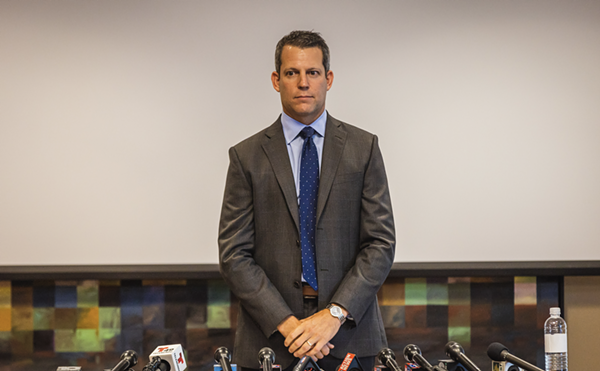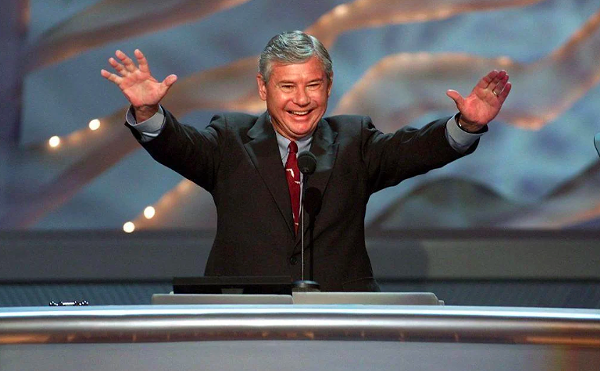His name is Prince, and he's still funky — but not nearly as much as he was during his glory days with Warner Bros., captured on the two-disc Ultimate Prince (Rhino), which corrals songs from 1979 to 1992. Disc 1 is a 17-song compendium of his best and biggest singles and album tracks; disc 2 collects nearly a dozen 12-inches and remixes that came out in a steady stream from the prolific artist.
Just so you know where I'm coming from — as the 1980s drew to a close and critics assessed music during that 10-year span, two figures came to the fore as Artist of the Decade: Bruce Springsteen and Prince (with some backing for U2 and a bit of misguided support for Madonna). People, I'm solidly in the Prince camp. He's one of my all-time favorites, and I love everything on Ultimate Prince.
Most of you know about "When Doves Cry" and "Purple Rain" and "Little Red Corvette" and "1999," so let's start with something a good many of you probably aren't aware of: the "special dance mix" of "Let's Go Crazy," which leads off disc 2. Released in '84, this is no techno-ized overhaul. An aggressively arranged instrumental section makes Prince's most raucously rockin' tune even more intense. If this seven-and-a-half minutes doesn't raise hairs on your neck, you might want to get fitted for a toe tag.
If there's one unfortunate aspect of Prince's '80s/early '90s output, it's that a large portion of it features the enormous, artificial snare drum sound — a Louisville Slugger banging a garbage can lid? — that came to define the decade. Prince played a significant part in popularizing this drum-machine-gone-crazy ethos, but, hey, it became the fashion. It sold records.
Two decades later, though, the effect can rattle your fillings. That's why a few songs on disc 1 that eschewed the thunder-snare sound come off as more timeless than the others: "Diamonds and Pearls" (1991) a terrific epic rock track is one; the endless spunky "I Could Never Take the Place of Your Man" ('87) is another.
If you've never checked out early Prince, it's an ear-opener. "I Wanna Be Your Lover," from his 1979 self-titled debut, is a sparely produced slice of pop/R&B. The slinky "Uptown," from Prince's 1980 cult breakthrough Dirty Mind, has a whiff of post-New Wave. The throbbing, synth-driven "Controversy" ('81) sounds like proto-techno.
When it comes to Prince before he became the Artist Formerly Known as Prince, I'm a completist. I have most, if not all, of the 12-inches filed in a crate somewhere; still, it's definitely nice to have several of these extended, revamped versions collected on one CD.
If you're among those who've dug Prince's post-2K renaissance, do not hesitate to go further back into his repertoire. Ultimate Prince is the ultimate starting point.
Before Jeff Beck went on to become essentially a jazz-fusion guitarist and Rod Stewart turned into a star and then began to suck, the two made music together in the Jeff Beck Group. This was the late '60s, and they were good for each other.
Stewart's raspy, soulful pipes lent Beck's guitartistry a song orientation, while the Beck Group allowed — forced — Stewart to wail and rock.
Two recently reissued albums, Truth (1968) and Beck-Ola ('69), stand as crucial, if less celebrated, pieces of the British blues-rock canon. And both showcase future Rolling Stone Ron Wood on bass.
Unlike peers Hendrix and Cream, the Jeff Beck Group lacked songwriters, so both albums are filled with heavy-rocking remakes of old blues classics and a few odd choices. ("Ol' Man River?") Truth, the better of the two albums, begins with an expansive re-imagining of "Shapes of Things," which was a 1966 hit for The Yardbirds, a band that ousted Beck. It also features the instrumental "Beck's Bolero," a piece of nascent jazz-fusion (with Keith Moon contributing some inspired bashing on the metallic coda).
Truth is, above all, a psychedelic blues-rock record; and among the titans of the style, Beck is probably the most idiosyncratic guitarist in terms of phrasing and his fondness for exploring the sonic possibilities of his axe.
Beck-Ola is a bit harder to pin down. The band is damn near unhinged at times, clattering and banging through a funkier set of tunes. On the sludgy instrumental "Rice Pudding," you can hear elements of what would become heavy metal and punk. The band tackles two Elvis Presley classics, transforming "All Shook Up" into a slab of rolling R&B and performing "Jailhouse Rock" pretty straight — only much, much heavier.
Both discs include bonus stuff. The slow blues "Sweet Little Angel" on Beck-Ola unveils some of Beck's fieriest playing. Truth includes Beck's 1967 Brit-poppy solo single "Hi Ho Silver Lining" and its like-styled B-side, "Tallyman."
No self-respecting fan of late '60s rock should live without either one of these discs.



















